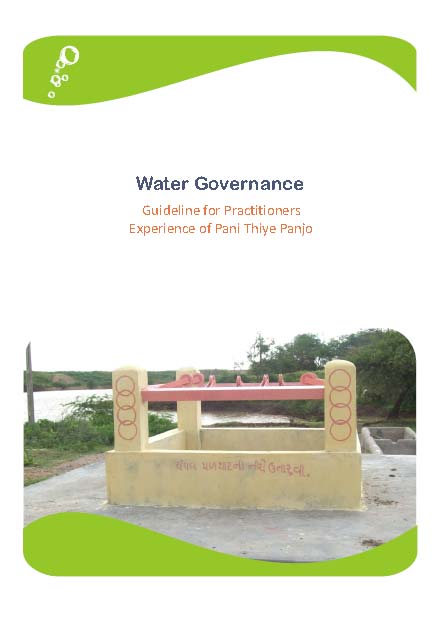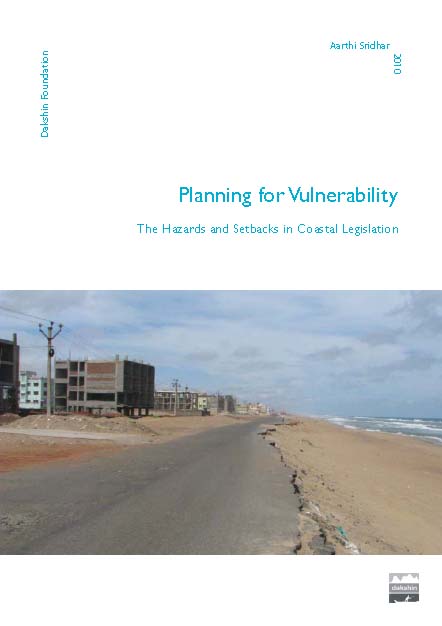Equity
Centrally sponsored schemes ARWSP and TSC have not done enough to ensure right to water and basic sanitation : Article from Combat Law
Posted on 28 Jun, 2011 04:59 PMThe Universal Declaration of Human Rights (1948) recognises the inherent dignity and the equal and inalienable rights of all human beings. There are certain basic needs that are essential for a dignified life. Water and sanitation are two of these essential human needs and a clean environment is also increasingly recognised as a fundamental human right.
Intensive farming responsible for farmer suicides - Interview with Devinder Sharma with special focus on Odisha
Posted on 27 Jun, 2011 11:54 AM
Q: Odisha is not much known for farmers' suicide the way we hear it in Vidarbha, Andhra Pradesh etc. But of late such cases are being reported in the media. What's the reason?
A: When you look at the issue of farmers' suicide, it's an indication of the crisis that exists in the agriculture sector. This is linked to monoculture and intensive or industrial farming model that have been implemented in the country. Vidharbha for instance has been in the news on the issue of farmers' suicide mainly because there is one NGO namely Vidharbha Jan Andolan Samiti which regularly compiles the figures of farmers suicide and feeds to the media. Unfortunately there are no such NGOs elsewhere to do a similar job. So therefore we do not get the real picture of farmers distress in other areas where conditions are equally bad. If suppose this NGO also stops compiling suicide figures, our impression about Vidharbha as a suicide belt of India will also disappear. In other words, not only in Vidharbha, agriculture across the country is in a terrible crisis.
Forget Prometheus and remember Bhagiratha: Wrong and right thinking about rivers ' - Shri Ramaswamy Iyer s lecture at School of Environmental Sciences, Jawaharlal Nehru University (June 2011)
Posted on 22 Jun, 2011 09:55 AM“Current economic philosophy exalts consumption and growth. If we are hypnotised by visions of 8% or 10% growth, we are bound to ‘demand’ more and more and still more water; and either government engineers or private companies and their engineers will come up with supply-side answers in the form of large projects which will cause even greater distress to the rivers”.
Tehri Dam across Ganga
Source: haridwar.nic.in/ gangaji.htm
I am very grateful to Prof. Sudha Bhattacharya for having invited me to this Seminar. I was not sure whether what I have to say would fit in well with the theme of this Seminar, but she persuaded me to say yes, and so here I am.
Water governance guidelines for practitioners - Sahjeevan's experiences in decentralised drinking water management
Posted on 20 Jun, 2011 08:50 PM This report is based on the experience of women’s collectives promoted by Sahjeevan and of several member organizations of Abhiyan on local water governance, in particular on the demonstrated models of decentralized drinking water that they have taken up in several villages.
This report is based on the experience of women’s collectives promoted by Sahjeevan and of several member organizations of Abhiyan on local water governance, in particular on the demonstrated models of decentralized drinking water that they have taken up in several villages.
Water has been the central theme for development in Kutch. In the last two decades, a scaling up process of decentralized drinking water, popularly known as Pani Thiye Panjo, has been initiated in around hundred villages of Abdasa taluka in Kutch district of Gujarat focusing on development of local drinking water sources, their strengthening and building capacities of communities for maintenance and management of the systems to develop drinking water security at the village level.
The concept of Pani Thiye Panjo, has been well accepted as Abdasa model, which besides providing drinking water security, initiated policy dialogues at the local level on issues such as protection of groundwater, pricing mechanism of water (local vis-à-vis external sources), role of Panchayati Raj Institutions in water governance, role of local youth in developing their technical capacities and development of social capital in management of drinking water systems.
"Battles over land" - Land as commodity and land for livelihoods - Special issue from Infochange
Posted on 18 Jun, 2011 12:48 AMWhat are the laws governing acquisition? What is the social impact of a development-at-all-costs policy? Can those who owned and lived off the land have a stake in its development?
Women at the center of climate friendly approaches to agriculture and water use - A report by the Institute for Agriculture and Trade Policy
Posted on 17 Jun, 2011 10:45 AM The Institute for Agriculture and Trade Policy draws on the experiences of the Tamilnadu Women’s Collective (WC), a state-level federation of women’s groups from 1,500 villages, in the context where communities all around the world are struggling to find ways to cope with changes affecting food and water security because of the phenomenon of climate change.
The report argues that many a times, new food and water security policies at the national and international level tend to be narrow, look at each of these issues in isolation and undermine food and water security strategies adopted by individuals and households from marginal groups. Adaptation strategies to address food security focus almost exclusively on increasing agricultural production, while ignoring health and cultural aspects of the food being produced, and the role of agriculture as a means for rural viability.
"Every 30 Minutes": Crushed by debt and neoliberal reforms, Indian farmers commit suicide at a staggering rate - A report by CHR&GJ - NYU School of Law - Interview with Democracy Now
Posted on 14 Jun, 2011 05:46 PMThe crisis has ballooned with economic liberalization that has removed agricultural subsidies and opened Indian agriculture to the global market. Small farmers are often trapped in a cycle of insurmountable debt, leading many to take their lives out of sheer desperation.
"NREGA implementation in State not satisfactory": MGNREGS News updates compiled by FES (16 - 30 April 2011)
Posted on 27 May, 2011 12:11 PM
Main highlights in this update:
- NREGA implementation in State not satisfactory: The report card on implementation of Mahatma Gandhi National Rural Guarantee Act (MGNREGA) is a mix bag for Assam, with at least 62 per cent households being provided employment under the flagship schemes, while ombudsman has not been constituted for any district and State fund.
Khadkipada, Maharashtra - A tale of development, an account of transformation - A film by WOTR on the Water Channel
Posted on 26 May, 2011 01:42 PM
Planning for vulnerability - The hazards and setbacks in coastal legislation – A report by Dakshin Foundation
Posted on 22 May, 2011 06:16 PM The law pertaining to coastal spaces – the Coastal Regulation Zone (CRZ) Notification, 1991 specifically decides what people can and cannot do on the coastal stretches of the country.
The law pertaining to coastal spaces – the Coastal Regulation Zone (CRZ) Notification, 1991 specifically decides what people can and cannot do on the coastal stretches of the country.



